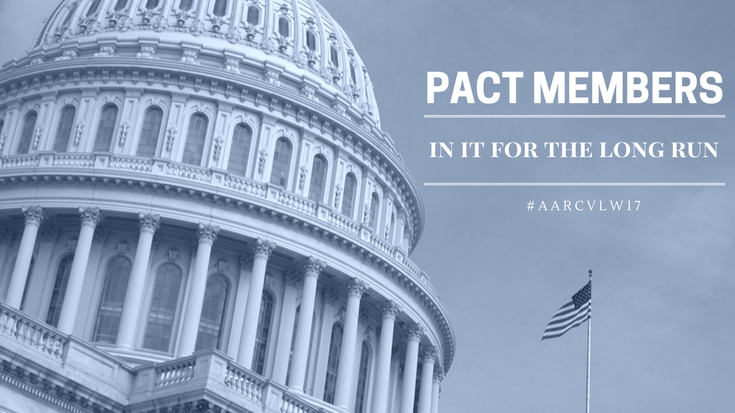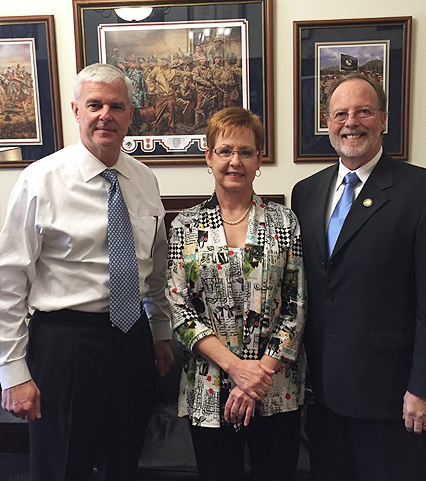
The AARC’s Political Advocacy Contact Team will be in Washington, DC, next Tuesday to lobby members of Congress on issues important to the respiratory care profession and the patients who depend on our care.
Their main message: include RTs in any telehealth legislation that is introduced into Congress this year.
Who are these PACT members and why do they volunteer to help ensure the profession’s voice is heard in our nation’s capital? Theresa Gramlich, MS, RRT, CPFT, and Art Middleton, BS, RRT, two long-time PACT members from Arkansas, are great examples of what it means to be a member of the PACT.
In it for the long haul

“This year will be my 16th PACT trip to DC,” says Gramlich. “When I started back in 1999, all PACT members were asked to commit to a five-year term so as to foster relationships with our elected officials. After five years, I felt we were just starting to see progress in our legislative efforts and I decided to stay longer.”
Her goal is to be there when patients with chronic lung disease can finally have full access to the expertise of RTs and the respiratory care services they provide outside the acute care setting.
Art Middleton feels the same way. A 15 year veteran of the PACT, he believes the annual trips to DC are “all about advocating for our patients and advancing our profession” and mission one is to “continue the fight to be recognized in the Medicare statutes.”
Making headway
Both therapists have seen great progress during their time in the PACT. “In the beginning, I can remember spending several minutes simply trying to explain what a respiratory therapist is and our diverse scope of practice,” recalls Gramlich.
Thanks to the AARC’s annual Capitol Hill Advocacy Day and the Virtual Lobby Week that precedes it, that is no longer necessary. Now, she continues, “They understand why we are there and they are ready to listen to our point of view.”
Middleton agrees lasting relationships are being forged. “They know who we are and understand the value of a respiratory therapist,” says the PACT member. “Unlike when we started years ago, our Congressmen and Senators no longer ask, ‘Now, what exactly is a respiratory therapist?’”
Ups and downs

Of course, lobbying Congress for anything is a challenge, and both Gramlich and Middleton agree there have been plenty of ups and downs during their time in the PACT. For them, the years 2011 and 2012 stand out as great examples.
Gramlich says it began with the wonderful news in 2011 that H.R. 941, the Medicare Respiratory Therapy Initiative, had been introduced into Congress by then Arkansas Rep. Mike Ross. The Arkansas delegation headed to Capitol Hill that year feeling as if a big job had been accomplished and saw the trip as more of a “social call to our legislators to thank them for their support,” says the therapist.
Unfortunately, the Congressional Budget Office (CBO) ended up scoring the cost of the bill much higher than the AARC’s outside accounting firm, and the bill was pulled from committee at the last minute.
The AARC was down, but far from out, and the next year’s trip proved it as revised legislation was introduced.
“The following year the Arkansas Society for Respiratory Care PACT lobbied for a meeting between AARC leadership and CBO for an explanation of such a high score,” says Middleton. “We were successful in getting the entire Arkansas Delegation to sign a letter to CBO Director Doug Elmendorf requesting that meeting. We ended our day with a few more co-sponsors as well.”
Keep on keeping on
Lesson learned: perseverance pays off. As the PACT heads to DC next week, now is the time for everyone in the profession to take that lesson to heart and write or call their members of Congress in support of RT inclusion in telehealth legislation.

